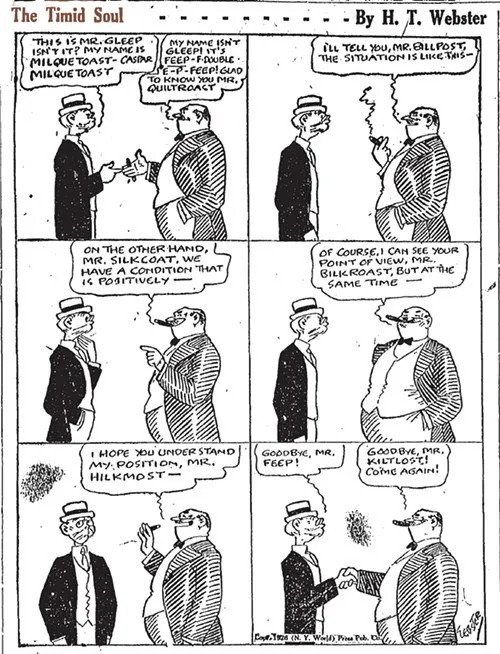The term ‘gaslighting’ feels fairly modern which it sort of is, depending on your definition of ‘modern’. It comes from a 1938 thriller play called, unsurprisingly, ‘Gas Light’ (it’s known as ‘Angel Street’ in the United States) by British playwright Patrick Hamilton. Set in the 1880s in a fog-bound London, ‘Gas Light’ tells the story of Jack and Bella Manningham. It begins in late afternoon, a time described by Hamilton as ‘before the feeble dawn of gaslight and tea’. Bella is clearly anxious, made worse by her mean husband flirting with the servants in front of her, as well as disappearing from the house for long periods of time and refusing to say where he’s going. After a while it becomes clear that Jack is trying to convince Bella she’s going nuts. One of the many small things he does to convince her she’s losing it is by denying that the gaslights that illuminate their home are dimming and flickering (even though they clearly are). In 1961, 23 years after the play was written, a psychiatrist and author called Dr Theodore Sarbin verbed that noun (more on that later) and coined ‘gaslighting’ as a description of a form of psychological manipulation in which someone undermines another person’s perception of reality.
If you don’t want to know what happens in the rest of the play, stop reading now as spoilers follow…
As well as the gaslights dimming, Bella also hears footsteps from the supposedly empty apartment above theirs – another thing Jack convinces her is in her head. Bella then meets Rough, an unfortunately named police detective. He’s investigating the murder of a wealthy woman called Alice Barlow who lived in the now-empty apartment above them. The murderer was never found, and neither were Alice’s jewels. It turns out that Jack has been going to her flat each night to search for the missing jewels – so it’s his footsteps Bella has been hearing. As well as that, when he lights that apartment’s gas lights it causes them to dim in the rest of the building, which is what Bella has also seen. Rough convinces Bella to help him expose Jack as the murderer. Bella offers to help Jack escape. Damn. But then, at the last minute, she reminds him she’s insane, which means she’s not accountable for her actions. The play ends with Jack being led away by the police. Yay!
‘Gas Light’ was made into a few films, the most famous of which is probably the 1944 Hollywood MGM version starring Ingrid Bergman (renamed ‘The Murder in Thornton Square’ in the UK – it also starred prolific serial killer Angela Lansbury* in her film debut). There’s also a great British version from 1940. We’re lucky to have that version at all – when MGM bought the remake rights they put a clause in the contract insisting that all prints of it be destroyed, including the negative, so it couldn’t compete with their version. Fortunately they failed, which is great for us as Time Out described it as:
‘Nothing like as lavish as the later MGM version ... But in its own small-scale way a superior film by far. Lurking menace hangs in the air like a fog, the atmosphere is electric, and [lead actress] Wynyard suffers exquisitely as she struggles to keep dementia at bay.’
You can watch the fully restored version of this film for free on YouTube.
Changing a noun like ‘gaslight’ to a verb (i.e. by adding ‘ing’) is called, rather unimaginatively, ‘verbing’ or ‘verbification’. Lots of people get cross about verbification, as it means we end up with horrible things like ‘to podium’ in sport (YUCK YUCK YUCK). But verbification has been going on forever, and is in fact where we get lots of verbs we use all the time now, including ‘access’ (as in ‘access a file’), ‘chair’ (as in ‘chair a meeting’), ‘host’ (as in ‘host a party’) and loads of others – like ‘email’, ‘strike’, ‘salt’, ‘switch’, ‘sleep’, ‘ship’, ‘train’, ‘stop’, ‘drink’, ‘cup’, ‘lure’, ‘mutter’, ‘dress’, ‘divorce’, ‘fool’ and ‘merge’, to name just a few stolen from Wikipedia.
*This is a joke about ‘Murder She Wrote’. Angela Lansbury was not, at least as far as I know, a serial killer, prolific or otherwise.
























